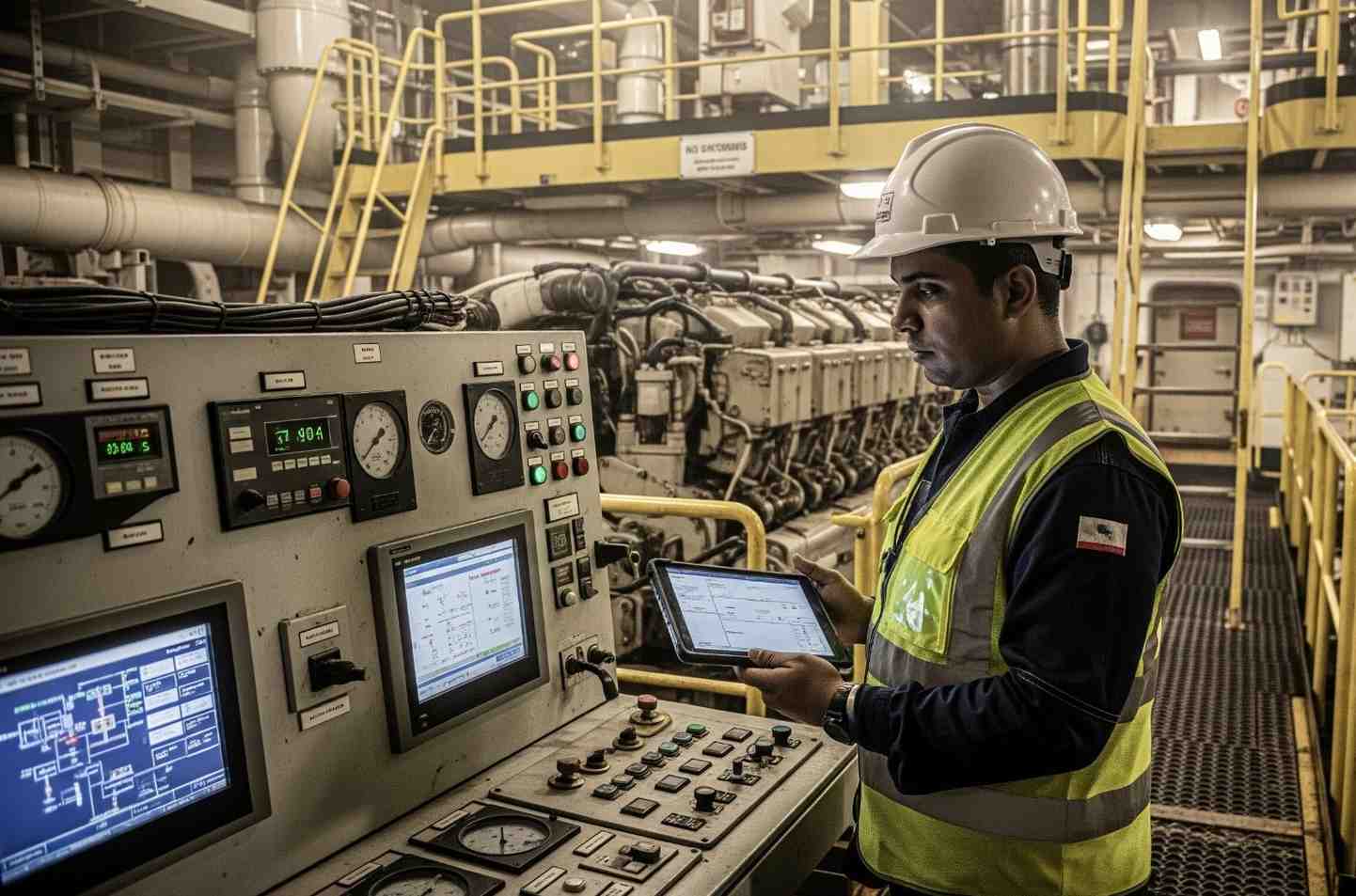
Marine automation systems are essential for the smooth and safe operation of modern vessels, whether it’s a commercial ship, cargo carrier or private yacht. These systems control everything from navigation and engine performance to alarms and power distribution. In the UAE, where marine operations are exposed to intense heat, high humidity and saltwater, regular servicing becomes even more important. This blog explains how often marine automation systems should be serviced, the factors that affect maintenance schedules and the risks of neglecting routine checks. Whether you own or manage a vessel in Dubai or anywhere in the UAE, this guide will help you understand how to keep your automation systems reliable, compliant and operating at peak performance.
Understanding Marine Automation Systems
Marine automation systems include a wide range of interconnected technologies that monitor and control a vessel’s operations. These systems reduce the need for manual control, improve efficiency, enhance safety and help vessels meet international compliance standards.
Some of the key systems include:
- Engine Monitoring and Control Systems
- Power Management Systems (PMS)
- Ballast and Tank Monitoring
- Alarm and Safety Systems
- Navigation and Communication Systems
- Cargo Management Automation
- Integrated Bridge Systems
Each of these components plays a vital role and any failure can affect the safety and operation of the entire vessel.
Why Servicing Is More Important in UAE Conditions
The UAE’s marine environment is harsh. Vessels operating here are exposed to:
- High temperatures can affect electronic systems
- Saltwater and moisture that lead to corrosion
- Dust and sand particles from coastal winds
- Heavy operational cycles due to the busy shipping and marine tourism industries
These conditions increase the wear and tear on automation systems. As a result, servicing schedules that work in milder climates might not be suitable for UAE conditions. Regular inspections and timely maintenance help prevent breakdowns and costly delays.
How Often Should You Service Marine Automation Systems?
There is no one-size-fits-all answer, but here are general guidelines based on vessel type, system usage and UAE operating conditions.
1. Quarterly Inspections (Every 3 Months)
This is highly recommended for vessels operating frequently in UAE waters.
- Inspect control panels and connections for corrosion or overheating
- Check software logs and alerts for any abnormal readings
- Test critical sensors and backup systems
- Clean air filters, fans and ventilation systems
2. Biannual Servicing (Every 6 Months)
Comprehensive servicing should be done twice a year.
- Calibrate sensors and automation modules
- Update firmware and control software
- Test alarms, emergency shutdown systems and safety protocols
- Inspect and clean circuit boards
- Verify data logging and communication systems
3. Annual Full System Audit
At least once a year, conduct a full diagnostic and performance check.
- Analyze the overall performance of each automation system
- Replace worn-out components
- Review compliance with local and international standards
- Provide crew training on updated systems or changes
Factors That Influence Service Frequency
While the above timeline is a good starting point, the following factors might require more frequent servicing:
- Type of vessel: Heavy-duty commercial ships may need more checks than private leisure boats.
- System complexity: Vessels with advanced integrated automation systems require more detailed diagnostics.
- Operating hours: The more time your vessel spends at sea, the more frequent your maintenance should be.
- Environmental exposure: Continuous exposure to saltwater and sunlight accelerates component degradation.
- Previous maintenance history: Older or previously neglected systems might need more frequent attention.
Common Signs Your System Needs Servicing
Even between scheduled maintenance, you should watch for signs that indicate your automation system needs attention:
- Unusual alarms or false warnings
- Lagging or unresponsive controls
- Inconsistent data on control panels
- Frequent system restarts or shutdowns
- Increased fuel consumption or performance issues
If you notice any of these signs, it’s best to contact a professional technician immediately.
Risks of Skipping Regular Servicing
Skipping maintenance may save time or cost in the short term, but it can lead to bigger problems later. Here’s what you risk:
- System failure at sea, which can lead to emergencies or accidents
- Costly repairs or replacements
- Regulatory non-compliance, resulting in fines or operational delays
- Data loss or poor decision-making due to inaccurate monitoring
- Reduced lifespan of equipment and systems
Benefits of Regular Marine Automation Maintenance
Keeping up with regular servicing has long-term benefits for vessel owners and operators:
- Improved safety and reliability
- Optimal fuel and energy efficiency
- Fewer emergency breakdowns
- Compliance with DMCA and SOLAS standards
- Better resale value for the vessel
- Peace of mind for crew and owners
Tips for Effective Maintenance Planning
To make servicing easy and efficient, follow these steps:
- Maintain a detailed logbook of all inspections, service visits and upgrades
- Use certified marine technicians who are familiar with UAE regulations
- Schedule preventive maintenance during dock time or off-seasons
- Install remote monitoring systems to detect early signs of failure
- Partner with a reliable service provider who offers both technical support and spare parts
Conclusion
In a nutshell, the UAE’s demanding marine environment, your automation systems need more attention than you might think. From extreme heat to salt-heavy air, conditions can quickly impact performance if regular servicing is ignored. A proper maintenance schedule not only prevents unexpected failures but also ensures your vessel operates safely, efficiently and in full compliance with maritime laws.
V-Tech Group offers professional marine automation services tailored to the needs of vessels operating in UAE waters. With our team of qualified experts and commitment to quality, we help you stay on course with reliable, fully functional systems. Whether you need routine inspections, system upgrades or emergency servicing, we are your trusted partner in marine electronics and automation. Contact us today.



